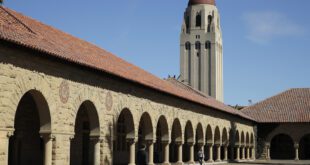rewrite the main part of
Dive Brief:
- A trio of senators urged Education Secretary Miguel Cardona this week to help end legacy and donor preferences in admissions.
- Sens. Edward Markey and Elizabeth Warren, both Democrats from Massachusetts, and Sen. Bernie Sanders, an independent from Vermont, wrote a letter Monday calling on Cardona to use his “advisory and investigatory authority” to level the playing field for college hopefuls.
- The lawmakers voiced concerns about the ongoing impact of legacy preferences, which tend to benefit White and wealthy students, in the wake of the U.S. Supreme Court decision in June striking down race-conscious admissions.
Dive Insight:
The letter marks one of the most prominent calls yet to end legacy and donor admissions, which gives preferential treatment to applicants related to donors and alumni. Scrutiny over these practices heightened after the Supreme Court gutted race-conscious admissions, uprooting decades of precedent.
“The Court’s decision strikes a blow against diversity in higher education while keeping intact harmful practices that advantage the wealthy and well-connected,” the lawmakers wrote.
The lawmakers applauded the Education Department’s recent decision to open an investigation into whether legacy and donor preferences at Harvard University amount to racial discrimination.
The agency’s inquiry is in response to a complaint filed by the nonprofit legal group Lawyers for Civil Rights, which found that 70% of Harvard students admitted through ties to alumni or donors are White. Legacy students are nearly six times more likely to be admitted than other students, while applicants related to donors are nearly seven times as likely, according to research cited by the group.
The three lawmakers called on the Education Department to support colleges transitioning away from legacy and donor preferences, aggressively pursue complaints against these practices, and deny federal funding to institutions that use these admissions tactics to disproportionately benefit White and wealthy students.
They also asked the department to commission a report on the negative impact of legacy admissions.
Their letter comes after congressional Democrats reintroduced a bill last month to ban legacy admissions. Though a 2022 version of the bill didn’t gain traction, calls to end the practice have grown since the Supreme Court ruling.
Colleges have also been voluntarily ditching the practice in recent years. Wesleyan University, a selective liberal arts institution in Connecticut, made headlines last month when its president told The New York Times that it had ended legacy admissions.
Wesleyan President Michael Roth called the practice “a sign of unfairness to the outside world.”
Likewise, Amherst College stopped giving preferential treatment to legacy applicants in 2021. This year, the selective Massachusetts institution reported that its incoming class has the highest proportion of first-generation students it has ever enrolled.
between 300 to 1000 words in html format and use paragraphs and subheadings with h3 tags.
 Mind Uncharted Explore. Discover. Learn.
Mind Uncharted Explore. Discover. Learn.




